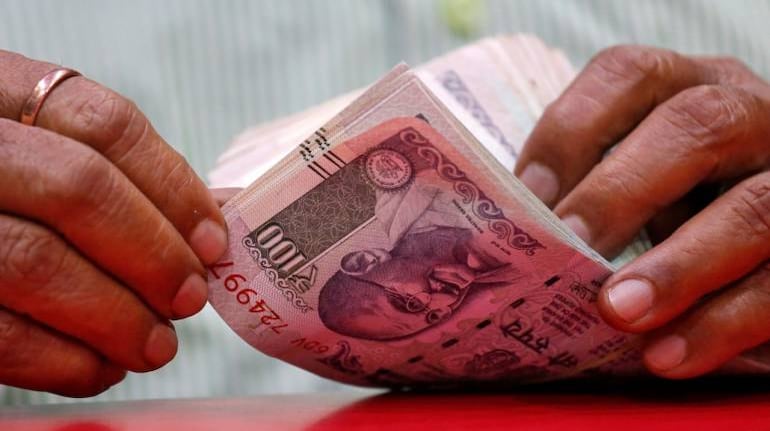



The central government’s announcement of increasing the gross borrowings to Rs 12 lakh crore from the budgeted Rs 7.8 lakh crore in FY21 will largely take care of the revenue shortfall, leaving little space for fiscal stimulus, a report by India Ratings and Research (Ind-Ra) has said.
"Notwithstanding the low crude prices and increased excise on petrol and diesel, Ind-Ra estimates the gross and net-tax revenue of central government in FY21 to fall short of the budgeted estimate by Rs 4.32 lakh crore and Rs 2.52 lakh crore, respectively," the report said.
Weak economic activities are also set to have an impact on non-tax revenue, and dividend and profit and other non-tax revenue would therefore decline by Rs 1.48 lakh crore from the FY21 budget estimate, the report said.
"This means the central government is staring at a revenue shortfall of Rs 4 lakh crore from the FY21 budget estimate," the report noted.
The report also says that the government is unlikely to meet the revised estimate of FY20 due to the country-wide lockdown. The centre’s gross and net-tax revenue has been estimated to be Rs 1.73 lakh crore and Rs 1.20 lakh crore, which is less than the FY20 revised estimate.
"This would translate into a revenue shortfall of Rs 1.62 lakh crore from the FY20 revised estimate," the report said.
The report also says that the revenue shortfall would account for 95.1 percent of the increased borrowings, leaving a purse of just around Rs 20,000 crore for the central government to provide fiscal stimulus.
Track this blog for latest updates on the coronavirus outbreak
"This is too small an amount to make any difference to the sagging economic activities/demand," the report said.
The report said that the onus is on the central government to provide support to not only vulnerable sections of the society but also state governments, because the actual battle against COVID-19 and associated expenditure is incurred by the state governments.
To combat the economic fallout of the pandemic, Prime Minister Narendra Modi announced a relief package of Rs 20 lakh crore. While announcing the various tranches, finance minister Nirmala Sitharaman last week gave out the break up on Rs 20 lakh crore.
Experts had been looking out for how increased government spending would help the economy get going. However, after the announcement of all five tranches, scope for increased government spending is minimal.
"The government's fiscal support programme totals Rs 21 lakh crore, which includes Rs 8 lakh crore of measures announced by the RBI. However, we estimate that the actual fiscal impact on the budget will be only Rs 1.5lakh crore (0.75 percent of GDP), based on our calculations and assumptions made during the series of announcements," said Rahul Bajoria, chief India economist at Barclays Plc.
A note by HSBC Securities said that the fiscal cost of the whole package, including announcements made in March, would amount to Rs 2.13 lakh crore, which is 1 percent of GDP. “The impact of the 10 percent of GDP package on the fiscal deficit is small,” said Pranjul Bhandari, chief India economist at HSBC Securities.
Follow our full coverage of the coronavirus outbreak here
Discover the latest Business News, Sensex, and Nifty updates. Obtain Personal Finance insights, tax queries, and expert opinions on Moneycontrol or download the Moneycontrol App to stay updated!
Find the best of Al News in one place, specially curated for you every weekend.
Stay on top of the latest tech trends and biggest startup news.